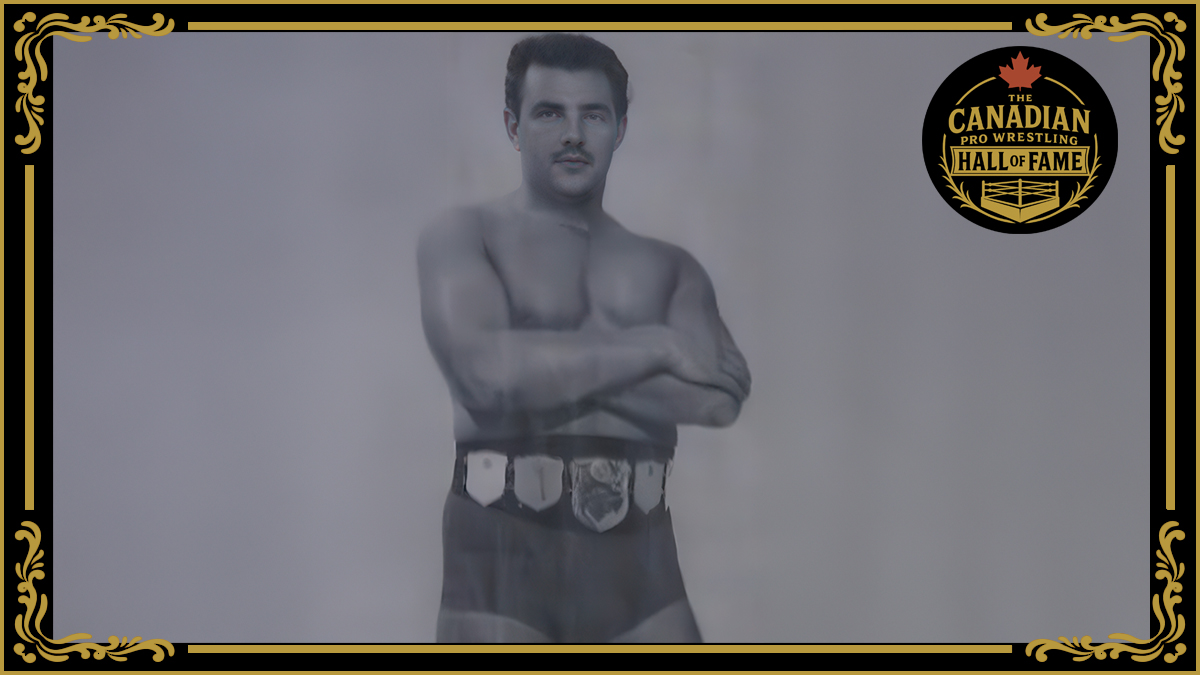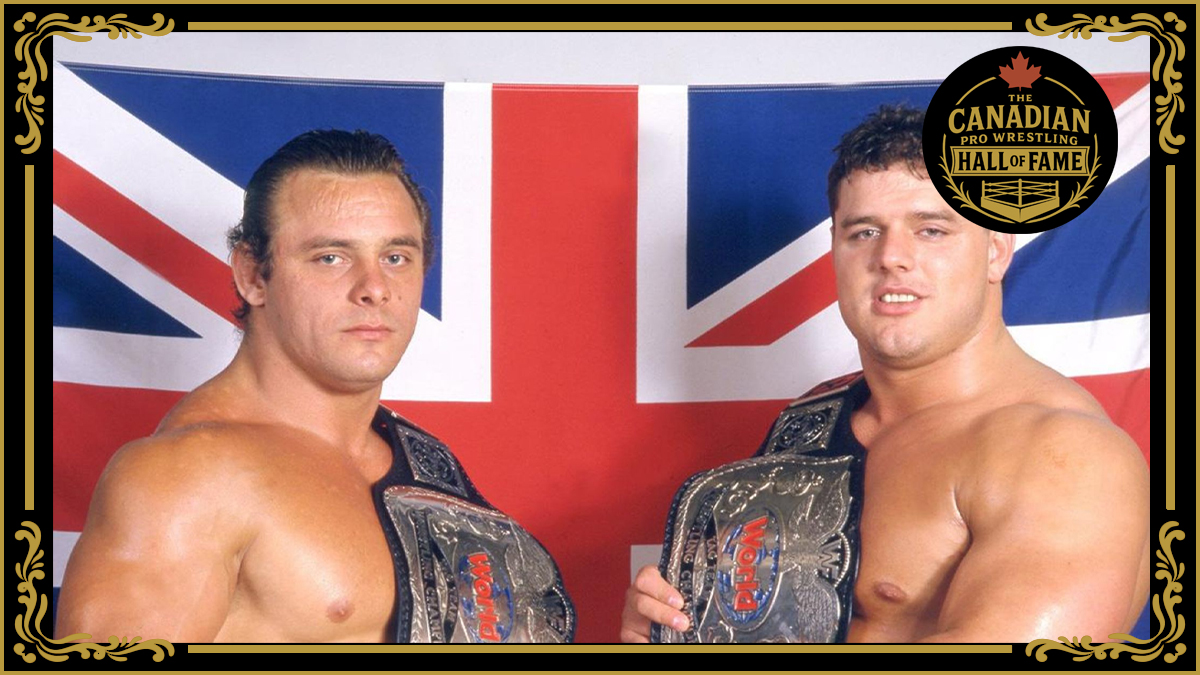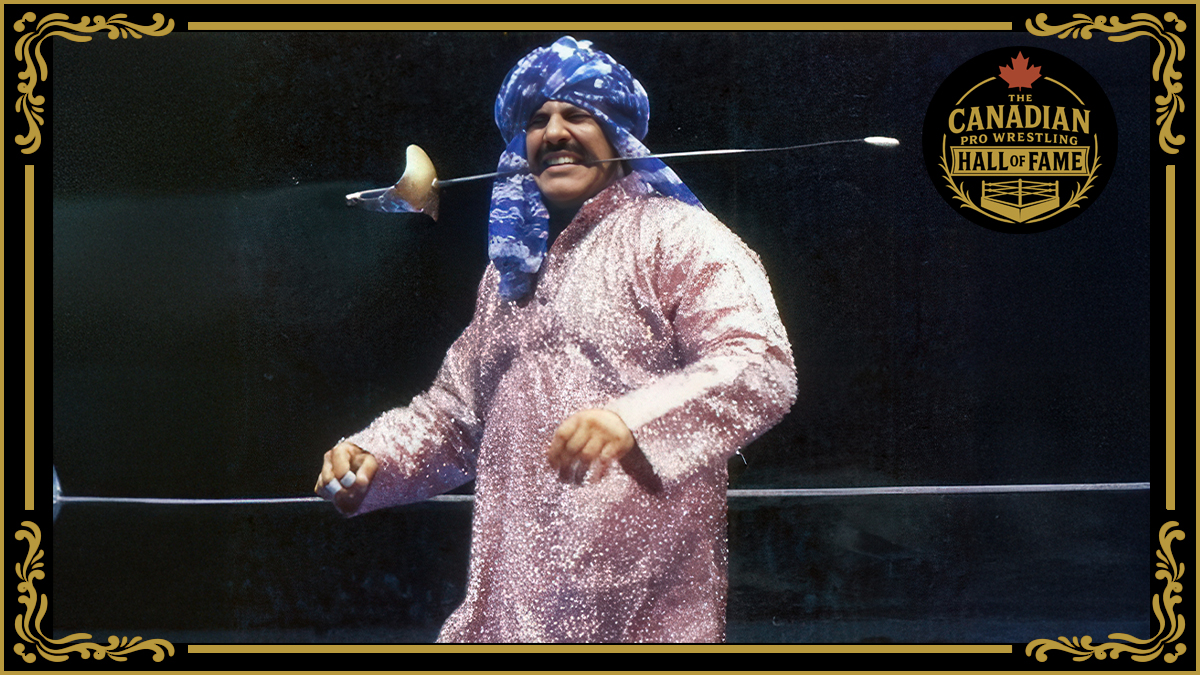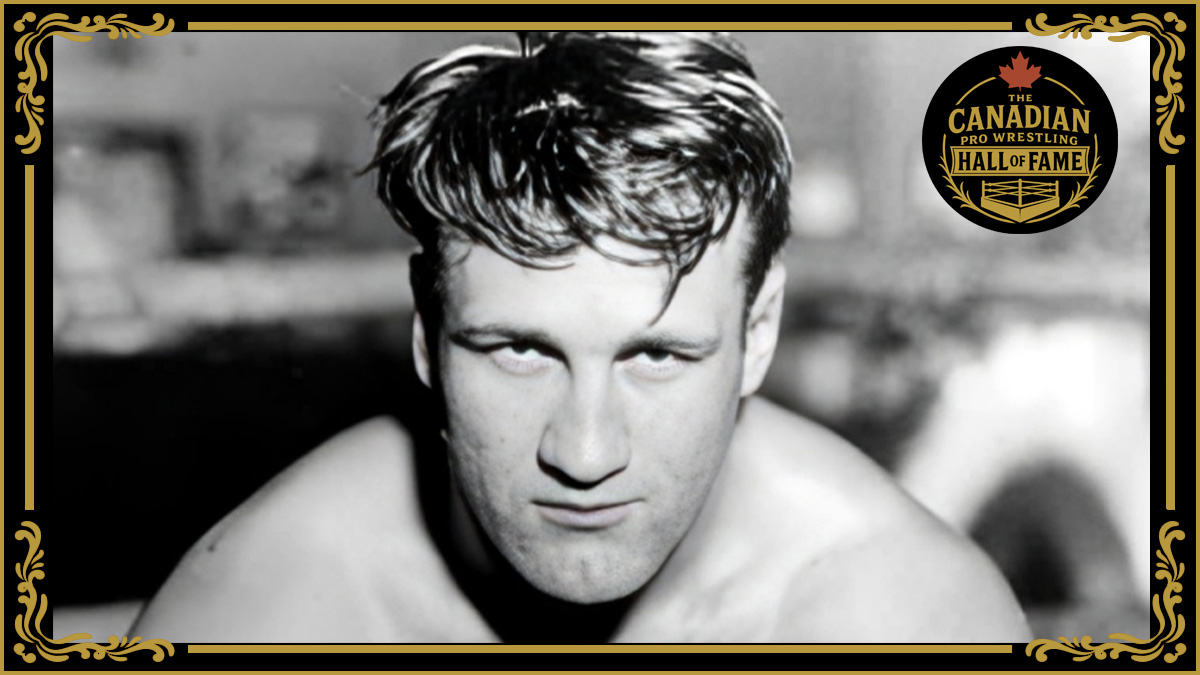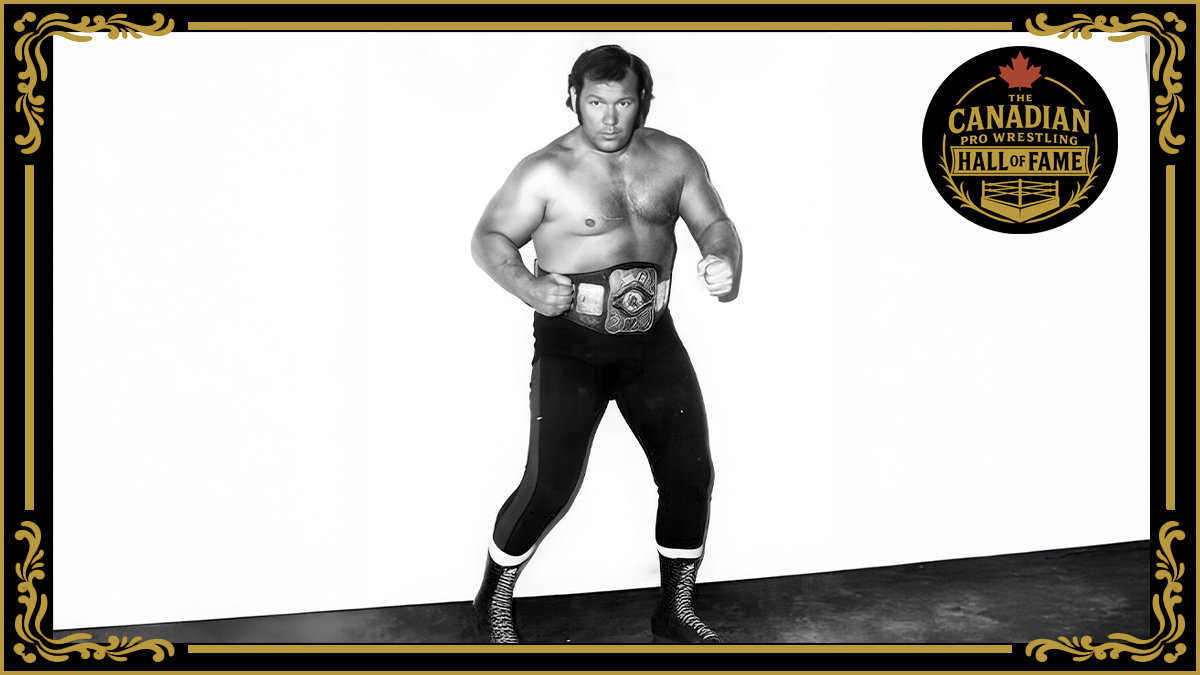There have been plenty of wrestlers nicknamed “Rock” and “Rocky” through the years, but only one of them hailed from Charlottetown, Prince Edward Island.
It’s time to recognize and celebrate Sheldon “Rock” Bowley — even if he won’t remember the moment.
Bowley, now 91 years old, is in a nursing home, in Souris, PEI, battling dementia.
A few years back, though, when he was approaching 82, he did take the time to talk to SlamWrestling.net about his life and times.
Born December 18, 1931, in Charlottetown, to Hudson and Eva (Cobb) Bowley, he grew up with two sisters, Kathryn and Doris, and one brother Heath.
Bowley made his way to Toronto when he was a teenager, and enrolled in what was then known as the Ryerson Technical College, where he studied business.
“As a young person, I went to Toronto because there was nothing here in PEI. Still isn’t. I realized I had to go back to school. There were programs back then for young people who hadn’t finished their education, because I didn’t have a great education,” recalled Bowley.
Ryerson — now known as Toronto Metropolitan University — was a small school at the time.
“It used to be called a poor boys’ school … it was trades. That’s why I was there,” said Bowley, who had fond memories of the O’Keefe brewery basically on campus. “It was a place for men who came back from the War who didn’t have a trade. They took them in a taught them things like barbering and hairdressing.” Bowley himself would work in barbering until his wrestling career took off.
The school had one of the best collegiate hockey teams (though a true interuniversity Canadian league had yet to be established), but it didn’t know what to do with someone who excelled at amateur wrestling.
“I was at the Central YMCA as an amateur wrestler. I was a student in Ryerson, but I was wrestling at Central YMCA, at College and Yonge,” he said. “I was the first student, the first they ever had as a wrestler. That was my excuse for not writing exams lots of times because I’d go to the gym.”
One of the men Bowley competed with at the “Y” was Harry Peace, who went to represent Canada in the freestyle wrestling competition at the 1948 Olympics in London.
But it was professional wrestling that was Bowley’s calling.
He learned from some of the pros who worked out at the Y as well. “I got into pro, because we started to take high bumps and off the ropes and stuff,” he said. “I was in the ring for 25 years.”
Like many in the wrestling business, it would be tough to break in locally. Toronto promoter Frank Tunney hooked him up to go to England in 1954.
“There were several wrestlers and we weren’t even ready to watch, for Frank Tunney to look at us. We were too small and we didn’t have experience,” said Bowley. “You had to go to England to get experience.”
It was far more than just England, for the young Canadian, who rhymed off other countries with ease: Germany, France, Belgium, Scotland …
The Rocky Bowley / Rock Bowley name was established in England, and it was good competition.
“The war was just over, and there were a lot of hard cases in the ring in those days, because nobody wanted to go to work,” said Bowley, who worked for Dale Martin Promotions and Dick & Jessie Rogers in Manchester. A highlight includes working in Royal Albert Hall.
In a November 1954 Weekly Sporting Review, Bowley was previewed: “Twenty-two-year-old Rock Bowley, from Toronto, Canada, is pleasing the crowds with his fast and flashy style of wrestling. At 14st., 2lbs., specialising in flying head scissors, and drop kicks, since making his debut in the British rings, he can now be ranked with the best.”
The trips to England were fairly common for Canadian wrestlers at the time, especially the lightweights and middleweights, where Bowley would fit in. In The Liberal newspaper, out of Richmond Hill, Ontario, on June 21, 1955, his international experience helped promote a match on the card against Alex Jensen, one half of the Hamilton Hoods tag team with Jack Diamond: “Rocky Bowley, who appeared here a few years ago and has only recently come back to Canada after a session in England. Rocky is very fast aggressive type of workman and should provide Mr. Jensen with plenty of action. Bowley went over big in England and was known as ‘the man of a thousand holds.'”
Back in North America, Rocky Bowley doesn’t appear on cards quite as often — at least not under that that name.
Bowley was Chief Little Bear for roughly a decade, certainly throughout Ontario on Bearman McKigney shows, but also down into Georgia, Alabama, Louisiana, New Mexico, Florida. His memory sharp at the time of this interview, Bowley even named some of the promoters like Mike London in New Mexico and Fred Ward in Atlanta. The southern states were a winter destination for him. (Note that there were other people who used the Chief Little Bear name over the years, including Archie Underwood and Eli Webster.) To fit the character, Bowley cut his hair into a Mohawk style and wore bearskin-like trunks.
The main base of operations for Bowley and his family, a son and daughter, was Orillia, Ontario. “I took the kids out of the city to raise them in Orillia,” he said, adding that wrestlers heading to northern Ontario would often swing through town to pick him up for the tours.
The last results for Rocky Bowley in a wrestling ring come in the 1981 time period, when he worked for Calgary’s Stampede Wrestling.
“Rocky Bowley only had a couple of matches for Stampede in the fall of 1979 when he got squashed by Sekigawa in Calgary and Edmonton,” wrote Ross Hart in an email. “At that time he was living in Calgary but pretty much retired from industry. He did work a few more local matches under a mask as The Scavenger at the end of 1981.” (Don’t confuse Rocky Bowley with Rocky Brewer, who was around at the same time.)
A Stampede Body Press program calls the 49-year-old a “newcomer” in its November 2, 1981 edition, when Rocky Bowley was facing Sekigawa in Calgary:
NEWCOMER GETS CHANCE
Ambitious wrestlers continue to look to the Northwest territory as the place where they can meet many of the top men in the sport and where they have to prove themselves if they expect to go far on the mat. President Stu Hart of the Foothills Athletic Club is in receipt of an almost daily barrage of letters from grapplers seeking matches here.
The latest is Rocky Bowley of New Mexico who didn’t bother to write. He just arrived on the Hart doorstep of his own accord and challenges against every leading heavyweight in the area — Leo Burk, Mr. Sekigawa, Don Gagne, as well as the mid-heavyweights.
At 235 pounds and with a good record in the southern states, he has been promised a chance. “Maybe he’ll find he has bitten off more than he can chew,” commented Hart, “but I think he deserves a chance to show what he can do in the ring. The same goes for any other wrestler who has enough confidence in himself to come up here at his own expense.”
After hanging up his boots, Bowley returned to PEI.
“This is my home here, and I inherited a couple of small farms. That brought me right back here to where I started out. I left as a kid, 16-1/2 years old, and I was gone for 32 years,” he said. Besides tending to the farms, he also worked as a trucker, and had a large loader, for asphalt and gravel.
He also had learned about the human body through the years getting bounced around, and it was this ability bend and adjust that endeared him to PEI’s second-greatest professional wrestler: Kowboy Mike Hughes. (The only other PEI wrestler Bowley noted was Newt O’Connor, a trainer for the Toronto Police Force who had been an amateur champion; “He never traveled like I did internationally. I would be the only one.”)
In a Facebook post, Hughes summed up Bowley: “Since I started in wrestling I’ve heard about the legend of Sheldon Bowley. As a wrestler, as a shooter and as a healer. He has always had the ability to really hurt people but is more legendary as someone to better peoples health and quality of life. I’ve have always admired him. I got to sit under the learning tree again tonight. He fixed my wife’s sciatica and shoulder and showed me some techniques. Always love time spent with this man. #Legend #2kayfabers”
It was now-retired Hughes who provided both the initial connection to Bowley, but also the update on the elder statesman’s rough health.
“He went into have hip surgery weeks before the pandemic. The anesthesia affected his mind,” noted Hughes. The result is that post-surgery, Bowley couldn’t remember people, with an advanced state of dementia.
Just as Bowley was hardly the only pro wrestler to be a “Rocky” he is, alas, hardly the only pro wrestler to suffer from dementia.
ADDENDUM: Sheldon Bowley died on February 27, 2024, less than a year after this article ran.
